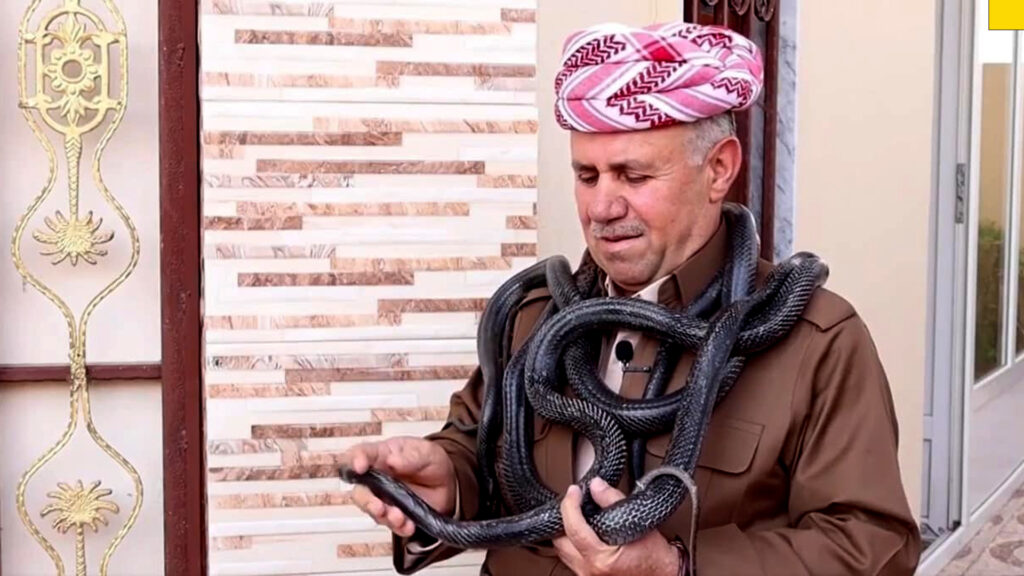In former ISIS bastion, displaced Syrians clamour to go home

The US-backed Syrian Democratic Forces (SDF) expelled the Islamic State group from the town last month, but it has since forbidden anyone from returning to its town centre.
"I want to go home. Why can't I?" Abed bellows in the street near what was once the town market but has become a cordoned off military area.
"Our sons are the ones who liberated" this town, says the father of four SDF fighters, wearing a checkered red-and-white scarf on his head.
"Why won't they allow us back? By God, it's outrageous."
Backed by air strikes of the US-led coalition, the SDF is still battling the last jihadists south of Hajin.
Abed fled Hajin last year while it was still under IS rule, seeking refuge in a camp for the displaced in SDF-held territory.
He returned in recent days to find his family's five homes destroyed, but wants access to rebuild them.
The SDF has allowed people to return to others parts of the town, but not in its devastated centre.
"No civilians allowed," they repeat all day long, to anybody trying to enter.
The main road is closed, but two trucks carrying people and their belongings drive down a side road towards an adjacent neighbourhood.
Abu Khaled, an SDF field commander in charge of the area, tells AFP the road needs to be checked for ordnance before it can reopen.
IS has often planted landmines before retreating, causing casualties among advancing SDF troops and returning civilians.
We'll send in sheep
But these warnings do not deter residents like Abed.
"We'll clear the mines ourselves," he says, still shouting. "We've become experts. They tried all sorts of weapons on us... Just let us go home!"
Sixty-year-old shepherd Aswad al-Aysh is also defiant.
"No problem, we'll get our sheep and make them walk in front of us," he quips, to show if there are mines.
His brother Abed al-Ibrahim, who fled town with him a year ago, says the town's people need to return to their land.
"Where else are we supposed to go?" he asks quietly.
Hajin was once a bustling IS hub, but today food is hard to come by, and the town's water and electricity networks have been ravaged in the fighting.
At the town's entrance, a young boy sells cigarette packs displayed on a broken table, while a man next to him peddles cans of fuel.
An armoured vehicle pulls up, and an SDF fighter swings open its door to distribute small bottles of water, and children come running.
After receiving his share, a young boy pleads for more.
"Give me another one for Granny," he says.
'No more sleeper cells'
On the banks of the Euphrates, trucks pump up water from the river before distributing it in the area.
In recent weeks, the SDF has cornered IS in a small patch of four square kilometres (400 hectares) south down the river.
The SDF commander-in-chief last week said he expected IS to be flushed out within a month, before operations to root out any remaining sleeper cells.
Unable to return to the Hajin town centre, residents are staying in a nearby village and commuting daily to see whether the SDF has lifted its ban.
Even the town's mayor, Ali Jaber Ali, no longer lives there -- though he says "there's nothing left of the town hall" anyway.
With his destroyed home out of reach in central Hajin, the 56-year-old is staying in the village of Abu Hamam.
He says he tried to convince the US-backed forces to let his people return.
"There are no more sleeper cells" here, he says he told them. "I know every single one of the townspeople. We need to go home."
Near the town centre, some residents are already rebuilding their homes.
A woman wearing a face veil shovels debris off her porch while a man rebuilds a collapsed wall.
Watching the scene, Amer Douda, 35, who hails from the cordoned off area, is incensed.
"Why don't they open up the roads?" he asks. "We're ready to go back and set up a tent amid the ruins.
"They're scared of us, but we're a peaceful people. They should know that."
Reporting by Rouba el-Husseini

